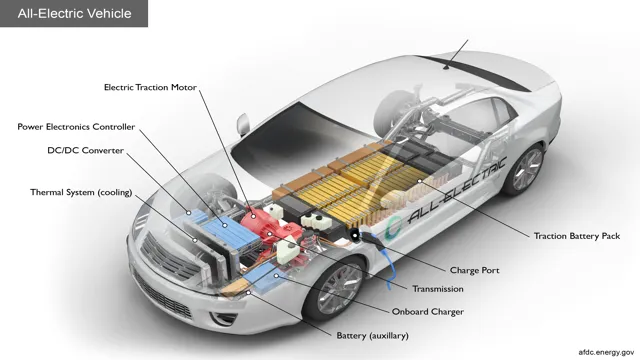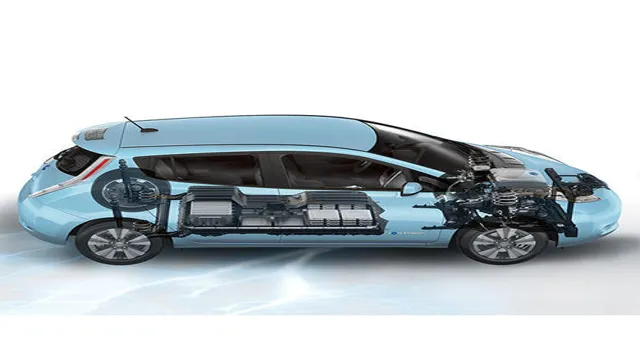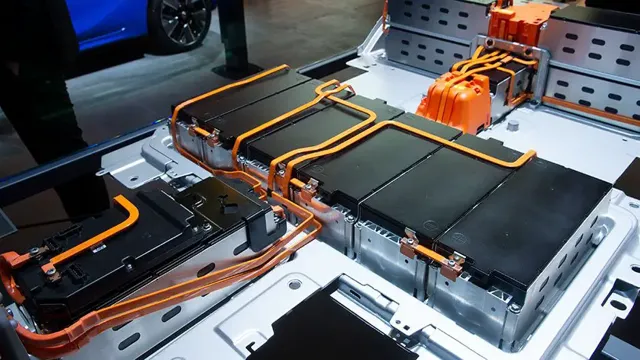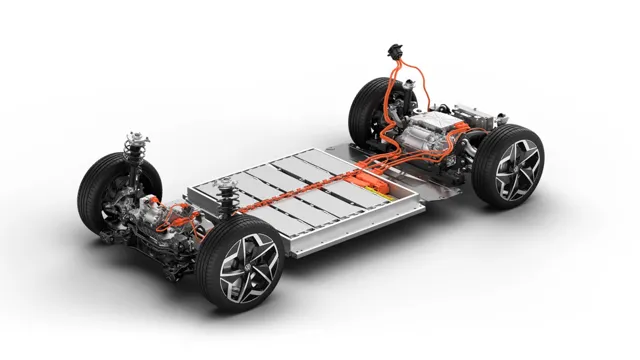Power Up Your Knowledge: Everything You Need to Know About Electric Car Battery Requirements
Electric cars are gaining popularity among the environmentally conscious as people are becoming more aware of the benefits of sustainable transportation. One of the most significant components of an electric vehicle is its battery. Electric car batteries are becoming increasingly sophisticated, and high-quality batteries can make a huge difference in the performance and efficiency of an electric car.
However, not all electric car batteries are created equal, and various factors determine the requirements for a suitable electric car battery. In this blog post, we will delve into the details of electric car battery requirements and what you need to consider when choosing an electric car battery.
Energy Capacity
When it comes to electric cars, the battery requirement is a crucial factor to consider. The energy capacity of the battery determines the driving range of the vehicle and therefore, it is important to choose a battery with suitable capacity. A larger capacity battery will provide a longer range, but will also be heavier and more expensive.
The power output of the battery is also important as it affects the acceleration and top speed of the vehicle. It is recommended to look for a battery with a power output that meets your driving needs. There are many different types of batteries available for electric cars, including lithium-ion, lead-acid, and nickel-metal hydride.
Each type has its own unique advantages and disadvantages, so it is important to do your research and choose the battery that best suits your needs. In conclusion, the electric car battery requirement is a critical consideration when choosing an electric vehicle and it is important to choose a battery that provides the desired range and power output for your driving needs.
How Much Energy Does an Electric Car Battery Need?
When it comes to electric cars, one of the main questions people ask is how much energy capacity is needed for the battery to be effective. The answer depends on a variety of factors, including the weight of the vehicle, the driving style, and the range required. Generally, most electric cars have a battery capacity between 40 and 100 kilowatt-hours (kWh), with higher-end models having capacities up to 200 kWh.
However, it’s worth noting that a higher battery capacity doesn’t necessarily mean a longer range or better performance. For example, a lighter vehicle with a smaller battery may be more efficient and have a longer range than a heavier vehicle with a larger battery. Ultimately, the energy capacity of an electric car battery needs to be balanced against other considerations, such as cost, weight, and performance, to find the ideal solution.
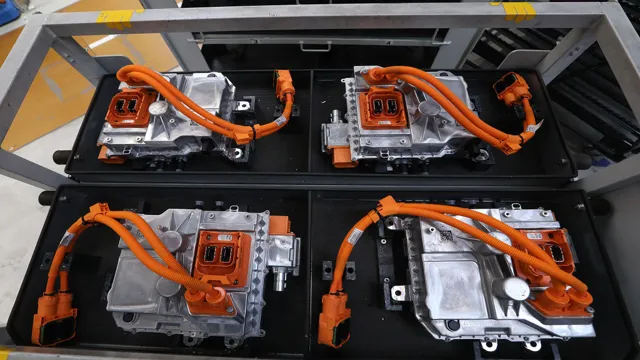
Factors Affecting Energy Capacity Requirements
Energy Capacity Requirements When sizing an energy storage system, several factors come into play. Firstly, the nature of the application must be analyzed to estimate the amount of energy required and for how long. The energy load profile is also an important aspect to consider as it indicates the variation in energy demand over time, such as peak hours or shifts in weather patterns.
Another factor is the efficiency of the storage system as it’s essential to account for energy loss. The available space for the energy storage system and the maximum discharge and recharge rates must also be taken into account. Furthermore, the energy source is another deciding factor, such as solar, wind, or a combination of both.
All of these aspects must be considered while sizing an energy storage system as it directly impacts the effectiveness and economy of the system in the long run.
Range
Determining the required range of an electric car battery can depend on various factors, such as frequency of usage, terrain, and driving style. In general, an electric car with a range of at least 200 miles is considered practical for most drivers. However, those who travel frequently or in remote areas may require a higher range.
It’s also important to consider the availability of charging stations in your area, as well as the type of charger you have access to. A level 2 charger at home can fully charge most electric car batteries overnight, but a fast-charging station can provide an 80% charge in as little as 30 minutes. Ultimately, the range of an electric car battery is a personal choice, and one that should be based on your individual needs and circumstances.
With the ongoing advancements in battery technology, we can look forward to even greater ranges and convenience in the future.
How Far Can An Electric Car Drive on One Charge?
Electric car range Electric cars have come a long way in recent years, and their range capabilities have improved tremendously. The range of an electric car refers to how far it can travel on a single charge of its battery. While the range of electric cars varies, most modern electric cars can drive between 100 to 400 miles on a single charge.
This range is dependent on several factors such as driving habits, weather, terrain, and the efficiency of the battery. In general, electric cars with larger batteries and more efficient drivetrains have a longer range. Advances in technology have made it possible for electric cars to go further on a single charge, and as the development of battery technology continues, this range is expected to improve even more in the future.
For people who are concerned about running out of battery power, there are now networks of charging stations available in most countries. These charging stations allow electric vehicle owners to recharge their car batteries while on the go, making electric vehicles a practical and convenient option for many people.
Factors Affecting Range Requirements
Range When it comes to determining the range requirements for a particular piece of equipment or technology, there are a number of factors that come into play. First and foremost, the type of device in question will be a major factor in determining how far it can transmit or receive signals. For example, Bluetooth devices typically have a range of about 30 feet, while Wi-Fi routers can broadcast signals up to several hundred feet away.
Other important factors to consider include the presence of obstacles such as walls or other barriers, as well as the frequency and strength of the signal being transmitted. In addition, the type of environment in which the device will be used can also have a significant impact on range requirements. For example, outdoor environments may require longer ranges than indoor spaces due to the increased distance between devices.
Overall, careful consideration of all of these factors is essential in order to determine the optimal range requirements for any given piece of technology or equipment.
Calculating Range Based on Battery Capacity
One of the most important factors that determine how far an electric car can go is its battery capacity. The range of an electric car refers to the distance it can travel on a single charge. Calculating the range based on battery capacity is simple.
You need to know the total energy capacity of the battery in kilowatt-hours (kWh) and the energy efficiency of the car measured in watt-hours per mile (Wh/mi). To get the estimated range, divide the total energy capacity of the battery by the energy efficiency of the car. For instance, a car with a 75 kWh battery and an energy efficiency of 4 Wh/mi can travel up to 1
75 miles on a single kWh of power (75 kWh divided by 4 Wh/mi). This means that it can travel up to 563 miles on a full charge. However, this range is affected by several factors, including driving style, terrain, weather conditions, and traffic congestion.
Charging Time
When it comes to electric car batteries, charging time is a crucial factor to consider. The charging time varies based on the electric car battery’s requirement and capacity. While some electric cars can be charged fully in as little as 30 minutes, others can take up to 12 hours to charge fully.
Typically, an electric car battery requires a charging time of 8 to 10 hours for regular charging. However, some electric cars come with a fast-charging option, which reduces the charging time significantly. It is important to note that fast charging can only be done up to a certain limit, as exceeding the limit can damage the battery.
Therefore, it is essential to understand your electric car’s battery requirement and ensure you have the appropriate charging infrastructure to keep your car charged when you need it. So, make sure you plan ahead and schedule your charging time accordingly to make the most out of your electric car.
How Long Does it Take to Charge an Electric Car Battery?
If you’ve been considering making the switch from a traditional gas-powered car to an electric vehicle, one of the things you might be curious about is how long it takes to charge the battery. Well, that depends on a few factors. First, the size of the battery will play a role in how long it takes to charge.
Smaller batteries will charge more quickly than larger ones. Additionally, the charging speed will depend on the type of charging station you’re using. A level 1 charging station, which is often just a standard household outlet, will typically take around 8-12 hours to fully charge a vehicle.
Level 2 charging stations, which are more powerful and commonly found at public charging points, can fully charge a vehicle in about 4-6 hours. Finally, some vehicles have the ability to use DC fast charging stations, which can provide up to an 80% charge in around 30 minutes. So, as you can see, the time it takes to charge will vary depending on the size of the battery and the type of charging station you’re using.
Either way, with a little bit of patience and planning, you can ensure your electric car is fully charged and ready to take you wherever you need to go.
Factors Affecting Charging Time Requirements
Charging Time Charging time is a crucial factor to consider when it comes to maintaining the battery life and overall performance of electronic devices. The duration required to charge a device depends on a variety of factors, including the capacity of the battery, the charging technology used, the age of the battery, and the type of device being charged. Typically, smaller devices like smartphones and tablets require less charging time than larger devices like laptops or electric vehicles.
The charging technology used also plays a crucial role in determining the charging time. Some technologies, such as quick-charging, can significantly reduce the charging time, while others, such as trickle charging, can take longer. Additionally, the age and usage of the battery can impact the charging time, with older batteries taking longer to charge.
It is important to note, though, that too much quick charging or inadequate cooling can damage the battery and reduce overall performance. Therefore, it is essential to consider all these factors when charging electronic devices to ensure optimal battery life and performance.
Conclusion
In today’s world, the demand for electric cars is increasing day by day, and with it, the need for robust and reliable batteries that can power these vehicles for longer durations. The requirements for an electric car battery are not just limited to high energy density, but also include factors such as safety, efficiency, and cost-effectiveness. With research and development in this field, we can expect to see batteries that not only meet these criteria but also surpass them, giving us the power to drive towards a greener and sustainable future.
So, let’s charge up our batteries, and drive towards a brighter tomorrow!”
FAQs
What is the typical range of an electric car battery?
The typical range of an electric car battery varies depending on the make and model of the car and can range anywhere from 80 to 300 miles on a single charge.
How long does it take to charge an electric car battery?
Charging time for an electric car battery varies depending on the type of charger being used. A Level 1 charger (120 volts) can take up to 20 hours to fully charge a battery, while a Level 2 charger (240 volts) can take anywhere from 4 to 8 hours. DC fast charging stations can provide an 80% charge in as little as 30 minutes.
What is the lifespan of an electric car battery?
The lifespan of an electric car battery can vary depending on usage and environmental factors. Most manufacturers offer a warranty of 8 years or 100,000 miles, but the battery can last significantly longer with proper care and maintenance.
How much does it cost to replace an electric car battery?
Replacing an electric car battery can be expensive and can cost anywhere from $3,000 to $10,000 depending on the make and model of the car. However, many manufacturers offer warranties and battery recycling programs that can help offset the cost.
